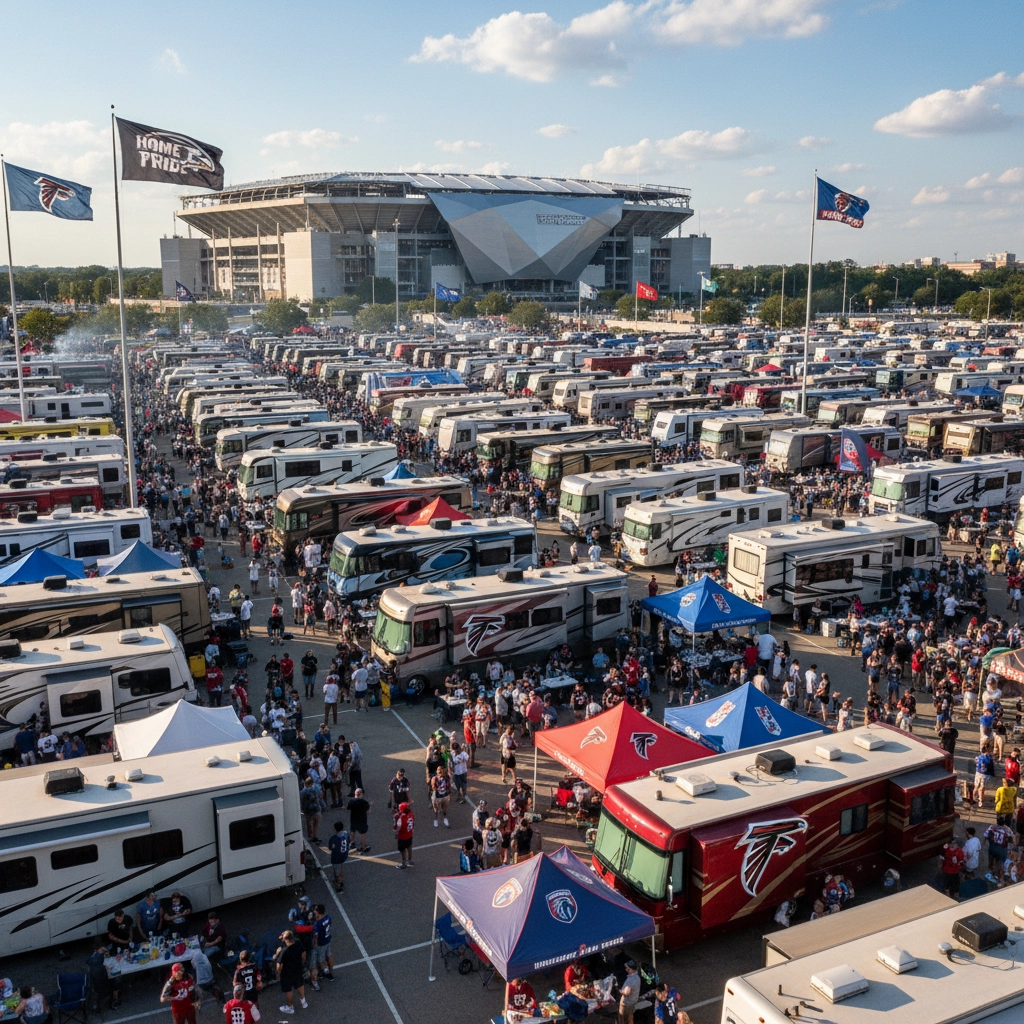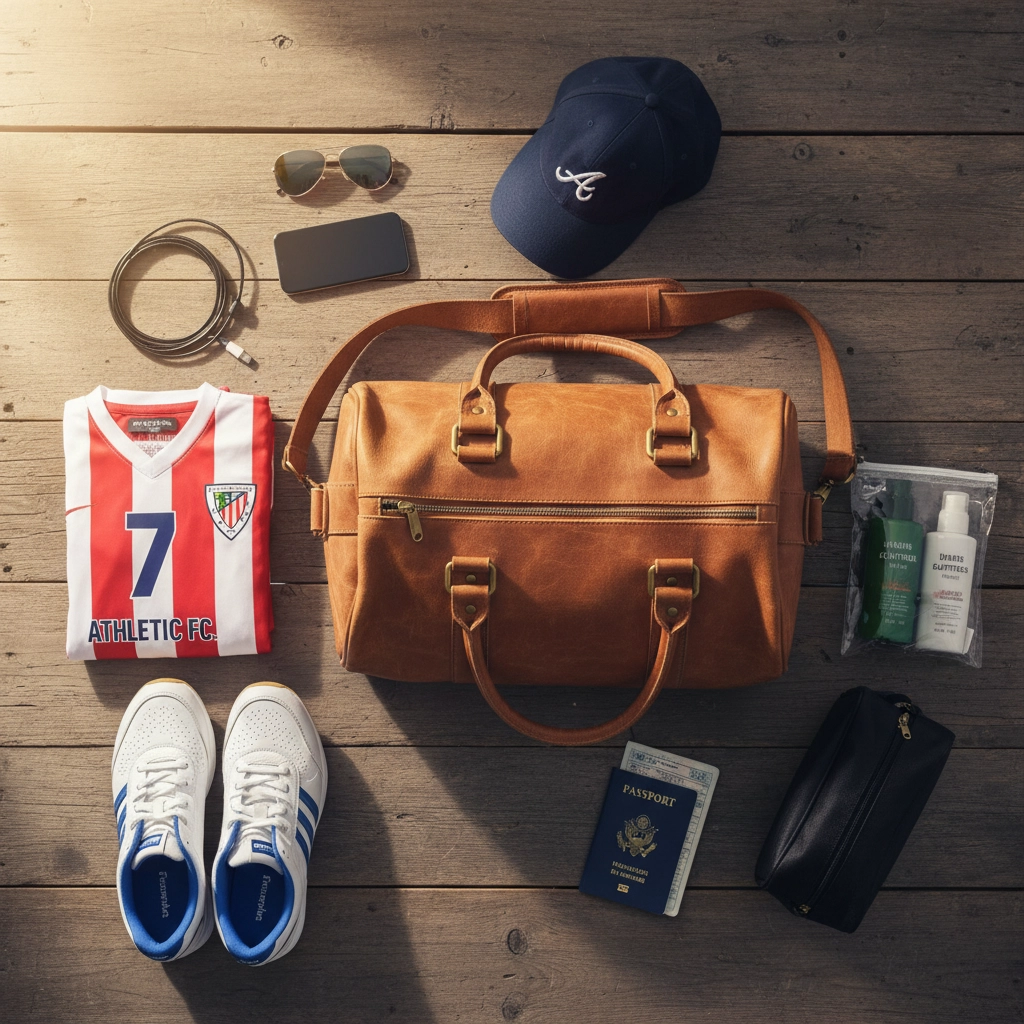Following your favorite sports team on the road transforms casual fandom into unforgettable adventures. Whether you're planning your first away game or dreaming of cross-country tournaments, sports travel requires preparation, budgeting, and strategic planning.
Getting Started: The Planning Phase
Sports travel begins months before departure. Successful fan travel requires advance planning, typically starting three to four months ahead of major trips or tournament seasons. This timeline allows for better pricing on flights, hotels, and group bookings.
Create clear objectives for your travel. Some fans prioritize visiting new stadiums, others focus on playoff runs, and many combine sports with sightseeing. Understanding your goals helps determine budget allocation and trip duration.
Research your team's schedule early in the season. Teams often release preliminary schedules that help fans identify must-see matchups and potential playoff scenarios. Conference tournaments, rivalry games, and milestone celebrations offer unique experiences worth prioritizing.

Transportation: Getting There and Back
Transportation represents the largest expense category for most sports travelers. Options vary based on distance, group size, and budget constraints.
For regional travel within 300 miles, driving offers flexibility and cost control. Carpooling with fellow fans reduces individual costs while building community connections. Many fan groups coordinate carpools through social media or team message boards.
Air travel becomes necessary for cross-country trips or international competitions. Booking flights 6-8 weeks in advance typically yields optimal pricing. Tuesday and Wednesday departures often cost less than weekend travel, though game schedules limit flexibility.
Charter buses work well for large fan groups traveling to neutral-site games or tournaments. Group charters provide cost efficiency and keep fans together throughout the journey. Some fan clubs organize annual charter trips for major bowl games or championship events.
Accommodation Strategies
Hotel selection balances cost, location, and amenities. Proximity to stadiums reduces transportation costs and time, though downtown hotels typically charge premium rates during game weekends.
Group bookings offer advantages beyond individual reservations. Hotels provide discounted rates for 10+ rooms and often include perks like complimentary breakfast or late checkout. Contact hotel sales departments directly rather than booking through third-party websites.
Alternative accommodations expand options in expensive markets. Short-term rentals work well for groups or families wanting kitchen facilities and common areas. Staying in suburbs or adjacent cities reduces costs while providing easy stadium access via public transportation.
Research hotel policies regarding noise, gatherings, and check-in times. Some properties restrict large groups or implement quiet hours that conflict with post-game celebrations. Reading recent reviews helps identify fan-friendly establishments.

Essential Documentation and Requirements
Proper documentation prevents travel disruptions and border delays. Domestic travel requires government-issued photo identification for air travel and some venues require ID for alcohol purchases.
International travel demands current passports and appropriate visas. Processing times vary by destination, so apply early. Some countries require passports valid for six months beyond departure dates.
Make copies of important documents and store them separately from originals. Digital copies stored in cloud services provide backup access if documents are lost or stolen.
Travel insurance protects against unexpected cancellations, medical emergencies, or travel delays. Policies covering sports events include provisions for game cancellations or venue changes.
Budgeting and Cost Management
Successful sports travel requires realistic budgeting across multiple expense categories. Transportation and lodging typically account for 60-70% of total costs, with meals, parking, and souvenirs comprising the remainder.
Create detailed budgets itemizing all anticipated expenses. Include obvious costs like tickets and hotels, plus hidden expenses like airport parking, baggage fees, and tip money. Add a 15-20% contingency for unexpected costs.
Track expenses during travel to maintain budget awareness. Mobile apps help categorize spending and identify areas for adjustment on future trips.
Look for package deals combining tickets, hotels, and transportation. Sports tour companies offer comprehensive packages that simplify planning while providing group pricing benefits.
Packing for Sports Travel
Efficient packing reduces stress and baggage fees while ensuring comfort throughout the trip. Create packing lists specific to destination climate, trip duration, and planned activities.
Team gear serves multiple purposes beyond showing support. Jerseys and team colors help identify fellow fans and create conversation opportunities. Weather-appropriate team apparel ensures comfort during outdoor games.
Pack versatile clothing suitable for various weather conditions and venue requirements. Some stadiums prohibit certain items or require clear bags for security screening.
Essential items include portable chargers, comfortable walking shoes, and weather protection. Sunscreen, rain gear, and layers accommodate changing conditions throughout game days.

Connecting with Fellow Fans
Sports travel creates opportunities for building lasting friendships with fellow supporters. Fan communities exist online and in person, providing resources for trip planning and companionship.
Join official fan clubs and alumni associations that organize group travel. These organizations offer structured trips with built-in social networks and sometimes provide access to exclusive events or team interactions.
Use social media to connect with fans traveling to similar events. Team-specific Facebook groups and Reddit communities help coordinate meetups and share travel tips.
Attend fan events and tailgates to meet locals and fellow travelers. These gatherings provide insider knowledge about destinations and create memorable experiences beyond the actual games.
Making the Most of Your Destination
Sports travel offers chances to explore new cities and regions beyond game day activities. Research local attractions, restaurants, and cultural sites to maximize trip value.
Allow extra time for sightseeing and exploration. Arriving a day early or staying after games provides opportunities to visit landmarks, museums, or natural attractions unique to the destination.
Sample local cuisine and visit neighborhoods beyond the sports district. Food tours, farmers markets, and local recommendations from hotel staff or rideshare drivers reveal authentic experiences.

Managing Game Day Logistics
Game day coordination requires planning for transportation, parking, and stadium entry procedures. Review venue policies regarding prohibited items, bag restrictions, and entry gates before departure.
Arrive early to accommodate security screening, find parking, and explore stadium amenities. Popular games create traffic congestion and longer entry lines that impact pre-game activities.
Plan post-game transportation in advance. Rideshare services experience high demand and surge pricing after games, while parking lots create traffic delays. Some fans prefer staying in the stadium area until crowds dissipate.
Have backup plans for weather delays, traffic issues, or other disruptions. Know alternative routes to stadiums and keep emergency contact information readily available.
Building Your Sports Travel Network
Regular sports travelers benefit from developing relationships with other fans, hotels, and service providers. Repeat customers often receive upgrades, discounts, and insider information about upcoming trips.
Keep contact information for fellow travelers met during trips. These connections provide resources for future travel planning and potential roommates for expensive destinations.
Track favorite hotels, restaurants, and local contacts in different cities. This information proves valuable for repeat visits and helps friends planning similar trips.
For serious sports travelers looking to connect with like-minded fans and discover new destinations, Travel.fanz.us provides a dedicated platform for planning sports adventures and building fan communities around shared travel experiences.

Sports travel transforms passive viewing into active participation in team culture and fan traditions. With proper planning, realistic budgeting, and openness to new experiences, following your team creates memories that extend far beyond individual game results. Each trip builds knowledge and confidence for future adventures while expanding your network of fellow supporters who share your passion for sports and travel.
